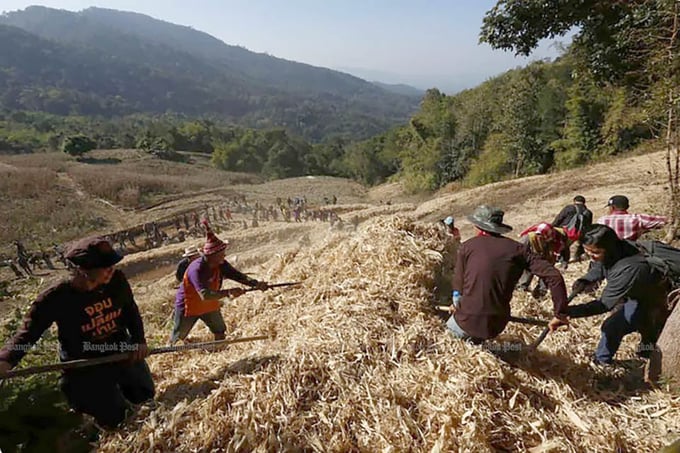June 16, 2025 | 20:05 GMT +7
June 16, 2025 | 20:05 GMT +7
Hotline: 0913.378.918
June 16, 2025 | 20:05 GMT +7
Hotline: 0913.378.918

Recognizing the economic pressures leading to agricultural waste burning, the premier made clear the need for innovative solutions and cooperation with the military to manage agricultural waste more effectively.
This action aims to reduce the annual haze crisis, which the government mainly attributes to agricultural practices in neighbouring countries such as Myanmar, Laos, and Cambodia.
Chai Wacharonke, a government spokesperson, said the cabinet has directed the Commerce Ministry to draft a regulation banning corn imports from places where field burning is a common practice, aiming to tackle the smoke-related smog that triggers annual health concerns.
Mr. Chai stated that the resolution underscored the government’s concerns regarding air pollution stemming from the burning of fields in neighbouring countries.
To prove the connection, decision-making officials plan to cross-reference corn cultivation regions with hotspot maps generated from satellite images.
The implementation of any import restrictions will be in accordance with the World Trade Organization’s regulations. Nevertheless, the enactment of these bans must await the approval of the anticipated Clean Air Act, slated for this year, he noted.
The spokesperson outlined that Thailand’s market demands approximately 8.9 million tonnes of corn each year, while its domestic production stands at around 4.9 million tonnes annually.
Presently, Thailand imports roughly 1.6 million tonnes of corn from its neighbours, which includes 600,000 to 700,000 tonnes from Myanmar, 300,000 to 400,000 tonnes from Laos, and about 100,000 tonnes from Cambodia.
An additional amount exceeding 2 million tonnes of corn is sourced from other nations, predominantly Brazil.
(Reuters)

(VAN) Extensive licensing requirements raise concerns about intellectual property theft.

(VAN) As of Friday, a salmonella outbreak linked to a California egg producer had sickened at least 79 people. Of the infected people, 21 hospitalizations were reported, U.S. health officials said.

(VAN) With the war ongoing, many Ukrainian farmers and rural farming families face limited access to their land due to mines and lack the financial resources to purchase needed agricultural inputs.

(VAN) Vikas Rambal has quietly built a $5 billion business empire in manufacturing, property and solar, and catapulted onto the Rich List.

(VAN) Available cropland now at less than five percent, according to latest geospatial assessment from FAO and UNOSAT.

(VAN) Alt Carbon has raised $12 million in a seed round as it plans to scale its carbon dioxide removal work in the South Asian nation.

(VAN) Attempts to bring down the price of the Japanese staple have had little effect amid a cost-of-living crisis.